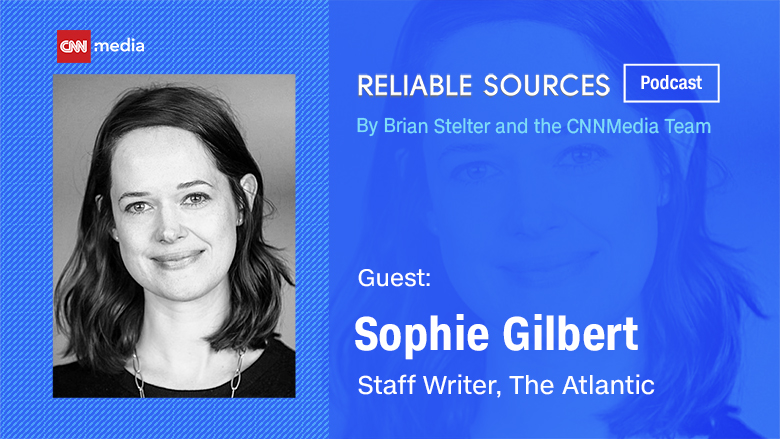
The Atlantic's Sophie Gilbert wrote a column recently that was widely praised by female journalists, many of whom took to Twitter to say they've been waiting for someone to tackle a negative stereotype that's long been perpetuated by Hollywood.
In her column titled "The Lazy Trope of the Unethical Female Journalist," Gilbert gave readers a history lesson about the storytelling trope that female reporters "are having sexual relationships with their bosses, their sources, or both." She credited New York magazine's Marin Cogan for analyzing this trend back in 2015 for an article in which Cogan cited "House of Cards" and the film "Thank You For Smoking" as examples of disappointing portrayals of female reporters.
But in 2018, amid a national reckoning over how men treat women in a professional setting, the cliché hasn't gone away. The most recent example is in "Sharp Objects," an HBO show starring Amy Adams, who plays a journalist whose behavior can best be described as questionable.
Female journalists in the real world are sick of it.
"I have been annoying everyone in my life with tedious rants on this exact topic," tweeted New York Times reporter Erin Griffith. "I feel very vindicated."
TechCrunch's Kate Clark shared Gilbert's column on Twitter and said, "We need accurate portrayals of women in many, many fields, including journalism."
Sex with sources, substance abuse, incompetence and crossing ethical boundaries are among the typical behaviors that make up the trope, which goes back "about four decades," Gilbert said.
"It's certainly interesting to think about in this moment a year after Harvey Weinstein and all the allegations that followed," Gilbert told CNN's Brian Stelter for this week's edition of the Reliable Sources podcast. "It sort of makes you think slightly differently about how innocent this portrayal of young ambitious female reporters sleeping their way to the top actually is, or whether it does in fact have ramifications."
Listen to the whole podcast here:
Gilbert said she heard from hundreds of female journalists since her column was published on August 20. Many thanked her for tackling the topic and some shared their own stories about sources getting the wrong idea.
"They shed their own anecdotes about, you know, how when they occasionally make outreach to potential sources on a professional level that it's often mistaken for a sort of personal outreach," she said.
These flawed representations of journalists are also harmful when taking into account the public's perception of the media.
"It sort of colors the way that people think about how female reporters do their job," Gilbert said. "And that matters certainly at a time like now when how much people trust the media and particularly people out doing reporting...that counts."
The earliest example of this trope that Gilbert found in her research was in a 1981 film called "Absence of Malice," which stars Sally Field. She plays a reporter in Miami who develops a romantic relationship with the man she's writing a story on.
"I think Roger Ebert when he was reviewing that movie noticed that it was fairly preposterous in its portrayal of journalism," she said. "But he also admitted that he didn't mind because it was entertaining and I think that's how it got started."
There are some notable examples of competent female journalists in entertainment, but they're typically in documentaries like "The Fourth Estate," or films that are based on true stories, Gilbert said.
Gilbert says this type of representation is popular because it plays up the mystique between a source and a reporter.
"I mean there is so much that's interesting about this job and particularly with the source-reporter relationship," she said. "It is so intimate and so fraught and there's all this kind of tension that can be explored in ways that I think would make for terrific television, even if it's not overtly sexual."


